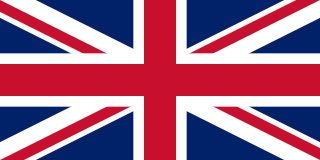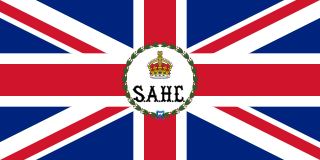Related Research Articles

Eswatini, formally the Kingdom of Eswatini and also known by its former official name Swaziland and formerly the Kingdom of Swaziland, is a landlocked country in Southern Africa. It is bordered by Mozambique to its northeast and South Africa to its north, west, south, and southeast. At no more than 200 km (120 mi) north to south and 130 km (81 mi) east to west, Eswatini is one of the smallest countries in Africa; despite this, its climate and topography are diverse, ranging from a cool and mountainous highveld to a hot and dry lowveld.

Artifacts indicating human activity dating back to the early Stone Age have been found in the Kingdom of Eswatini. The earliest known inhabitants of the region were Khoisan hunter-gatherers. Later, the population became predominantly Nguni during and after the great Bantu migrations. People speaking languages ancestral to the current Sotho and Nguni languages began settling no later than the 11th century. The country now derives its name from a later king named Mswati II. Mswati II was the greatest of the fighting kings of Eswatini, and he greatly extended the area of the country to twice its current size. The people of Eswatini largely belong to a number of clans that can be categorized as Emakhandzambili, Bemdzabu, and Emafikamuva, depending on when and how they settled in Eswatini.

Basutoland was a British Crown colony that existed from 1884 to 1966 in present-day Lesotho, bordered with the Cape Colony, Natal Colony and Orange River Colony until 1910 and completely surrounded by South Africa from 1910. Though the Basotho and their territory had been under British control starting in 1868, the rule by Cape Colony was unpopular and unable to control the territory. As a result, Basutoland was brought under direct authority of Queen Victoria, via the High Commissioner, and run by an Executive Council presided over by a series of British Resident Commissioners.
High commissioner is the title of various high-ranking, special executive positions held by a commission of appointment.

The Orange River Colony was the British colony created after Britain first occupied (1900) and then annexed (1902) the independent Orange Free State in the Second Boer War. The colony ceased to exist in 1910, when it was absorbed into the Union of South Africa as the Orange Free State Province.

William Waldegrave Palmer, 2nd Earl of Selborne, styled Viscount Wolmer between 1882 and 1895, was a British politician and colonial administrator, who served as High Commissioner for Southern Africa.
Resident commissioner was or is an official title of several different types of commissioners, who were or are representatives of any level of government. Historically, they were appointed by the British Crown in overseas protectorates, or colonies, and some still exist in this capacity. The United States of America once had a resident commissioner in the Philippines and the Puerto Rico resident commissioner resides in Washington DC. State governments of today's Republic of India have a resident commissioner to represent them in New Delhi.

The Bechuanaland Protectorate was a protectorate established on 31 March 1885 in Southern Africa by the United Kingdom. It became the Republic of Botswana on 30 September 1966.

Sobhuza II was Ngwenyama (King) of Swaziland for 82 years and 254 days, the longest verifiable reign of any monarch in recorded history.
Ngwane V was the King of Swaziland from 1895 until his death on 10 December 1899. Ngwane was born the son of Mbandzeni and his mother was Labotsibeni Mdluli. He ascended to the throne after a short regency of Queen Mother Tibati Nkambule. He was only 16 years old when he became king. His royal capital was at Zombodze while the Queen Mother's residence was at Lobamba.
Labotsibeni Mdluli, also known as Gwamile, was the queen mother and queen regent of Swaziland.

Ndlovukati is the siSwati title for the female monarch of Eswatini. The title is given preferentially to the mother of the reigning king, or to another female royal of high status if the king's mother has died. The title is roughly equivalent to a queen mother, though she is jointly head of state, ruling alongside the Ngwenyama. The title can also mean doctor. When there is no king, the Ndlovukati rules as queen regent. The current Ndlovukati is Queen Ntfombi Tfwala, the mother of Ngwenyama Mswati III and wife of Sobhuza II. She was also queen regent from 1983 until 1986 when Mswati became king. The most notable queen regent was Ndlovukati Labotsibeni Mdluli who ruled Swaziland from 1899 until 1921 when she abdicated for Sobhuza II.

Lobamba is a place in Eswatini that is located in between Eswatini's two main cities.
Mbandzeni was the King of Swaziland from 1872 until 1889. Ingwenyama Mbandzeni was the son of Mswati II and Nandzi Nkambule. His mother the wife of King Mswati had died when he was still very young.

The British office of high commissioner for Southern Africa was responsible for governing British possessions in Southern Africa, latterly the protectorates of Basutoland, the Bechuanaland Protectorate and Swaziland, as well as for relations with autonomous governments in the area.

In the Commonwealth of Nations, a high commissioner is the senior diplomat, generally ranking as an ambassador, in charge of the diplomatic mission of one Commonwealth government to another. Instead of an embassy, the diplomatic mission is generally called a high commission.
'Mantšebo was the ruler of Basutoland from 1941 to 1960, as the regent for her stepson, the future Moshoeshoe II.

Sir de Symons Montagu George Honey, was a Cape Colony-born colonial administrator. He served as Resident Commissioner in Swaziland, from 1917 to 1928 and as Governor of the Seychelles from 1928 to 1933.